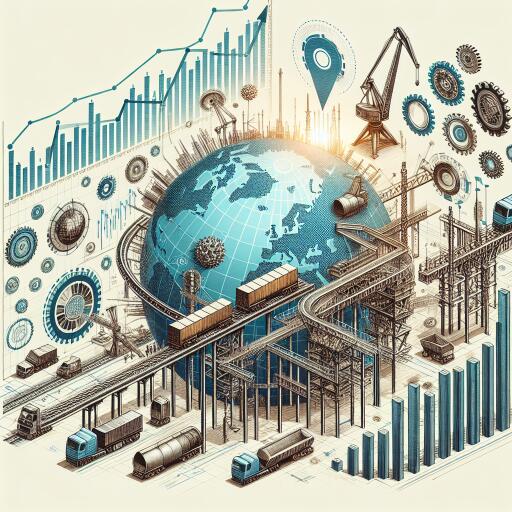Optimism in the Face of Challenges: India’s Steel Sector on the Rise
In the ever-evolving landscape of the global steel industry, India emerges as a beacon of growth and opportunity despite facing a slowdown in exports and competitive pressures from increasing Chinese steel output. With a remarkable jump in domestic steel consumption, India positions itself as an attractive market for both domestic and international steel manufacturers.
Recent data reveals a dip in India’s steel exports, recording a six-month low of 0.5 Million Tonnes (MT) in May 2024, down from 0.66 MT in April 2024. This decline is attributed to a variety of factors, including maintenance-related production slowdowns, a shift towards prioritizing the domestic market, limited export quotas to the European Union (EU), a global deceleration in steel demand, and competitive pricing from China.
However, the country’s finished steel consumption tells a different, more optimistic story. April-May 2024 saw a significant increase in steel consumption by 10.5 percent to 23 MT, marking the highest six-year surge. This growth underscores the robust domestic sentiments, holding promise for India’s dependency on its internal market, despite the global challenges.
External pressures such as the EU’s extension of its Safeguard Measure on steel exports, particularly on European hot-rolled coil (HRC), until mid-2026, and the availability of higher quantities of steel from China for exports, might continue to challenge Indian exports. Anil Kumar Chaudhary, Chair of the Minerals and Metals Committee at the PHD Chamber of Commerce and Industry, shared insights, asserting that strong domestic consumption is expected to balance out the export market’s losses.
Driving the optimism is the higher infrastructure spending and the acceleration of economic growth, making India an increasingly lucrative market for steel producers globally. Research from SteelMint highlights a 13 percent growth in domestic finished steel consumption, reaching 136 million tonnes during the fiscal year 2023-24, primarily fueled by the automotive and infrastructure sectors.
The Indian government is also bullish about the sector’s prospects. Steel Secretary Nagendra Nath Sinha projected a 10 percent growth in demand, affirming the industry’s positive trajectory. Echoing this sentiment, Sanjay Gupta, Chairman and Managing Director of APL Apollo Tubes Limited, emphasized the significant domestic demand driven by substantial construction, infrastructure projects, and the automotive sector.
With the government’s focus on infrastructure development and the ‘Make in India’ initiative, the potential for increased domestic steel consumption is clear. Industry experts suggest that investing in capacity expansion, adopting advanced technologies, and enhancing operational efficiencies are key strategies for capitalizing on these opportunities.
The companies in the sector are reportedly achieving margins of up to 15 percent, highlighting the profitability and potential of the domestic market. Despite global demand slowdowns putting pressure on steel prices, firms that have embraced cost-cutting measures and efficiency improvements have managed to maintain satisfactory margins.
A CRISIL report identified India as a net importer of steel in the fiscal year 2024, with a steel trade deficit of 1.1 million tonnes (MT). Nevertheless, government initiatives aimed at expanding infrastructure in both urban and rural areas, alongside schemes such as PM Gati Shakti and Make in India, continue to drive demand for steel, underscoring a bright future for the industry in India.
The Indian steel sector stands at a juncture of challenge and opportunity. With proactive government policies, growing domestic demand, and the industry’s strategic response to global market dynamics, India is gearing up to fortify its position as a key player in the global steel arena.
